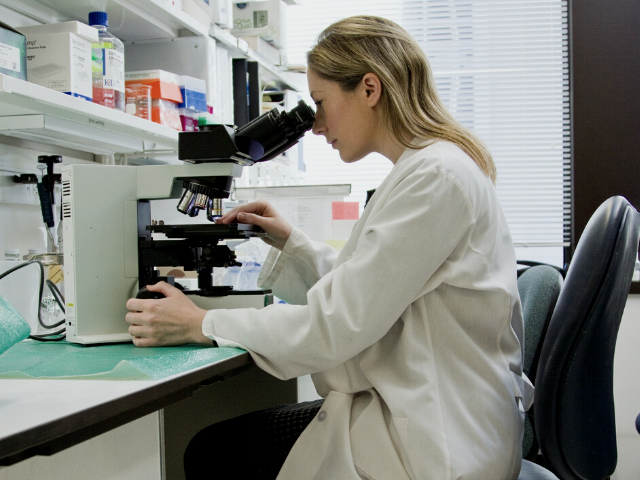
Attack of the T cells
New research from Cardiff University has discovered that a patient’s chances of fighting cancer are greatly improved when the anti-cancer T cells already in their body are given a boost from a molecule called L-selectin.
So far, treatment that harnesses the power of a patient’s T cells, the cells that attack viruses and cancers, has only been successful when fighting certain types of Leukaemia. This is because cancerous cells circulating in the blood are easier for T cells to find and attack, whereas treating solid cancers is much harder.
Part-funded by the Wales Cancer Research Centre through Health and Care Research Wales, the study team is using the knowledge that L-selectin helps T cells move from the bloodstream into inflamed tissue to help fight infection, to find out if increasing the amount of the molecule will replicate this effect for T cells when attacking solid cancers.
Professor Ann Ager, from Cardiff University’s Systems Immunity Research Institute, said: “Our results were surprising. While increased L-selectin did improve the ability of T cells to fight solid cancers it wasn’t because of better homing [the T cells ability to find inflamed tissue].
“The modified T cells entered solid cancers within the first hour and kept accumulating inside the solid cancers over more than a week, suggesting that L-selectin also plays a role in activation and retention of anticancer T cells inside cancers.”
This could mean that this type of therapy, called immunotherapy, can be used to treat more types of cancer. “This is great news as this type of treatment is more targeted and doesn’t damage healthy cells,” Professor Ager commented.
This research has therefore revealed a new role for L-selectin in cancer therapy, one that could provide immunotherapy for solid cancers that currently can’t be treated with T cell-based therapies.
First published: @ResearchWales Issue 7, November 2019